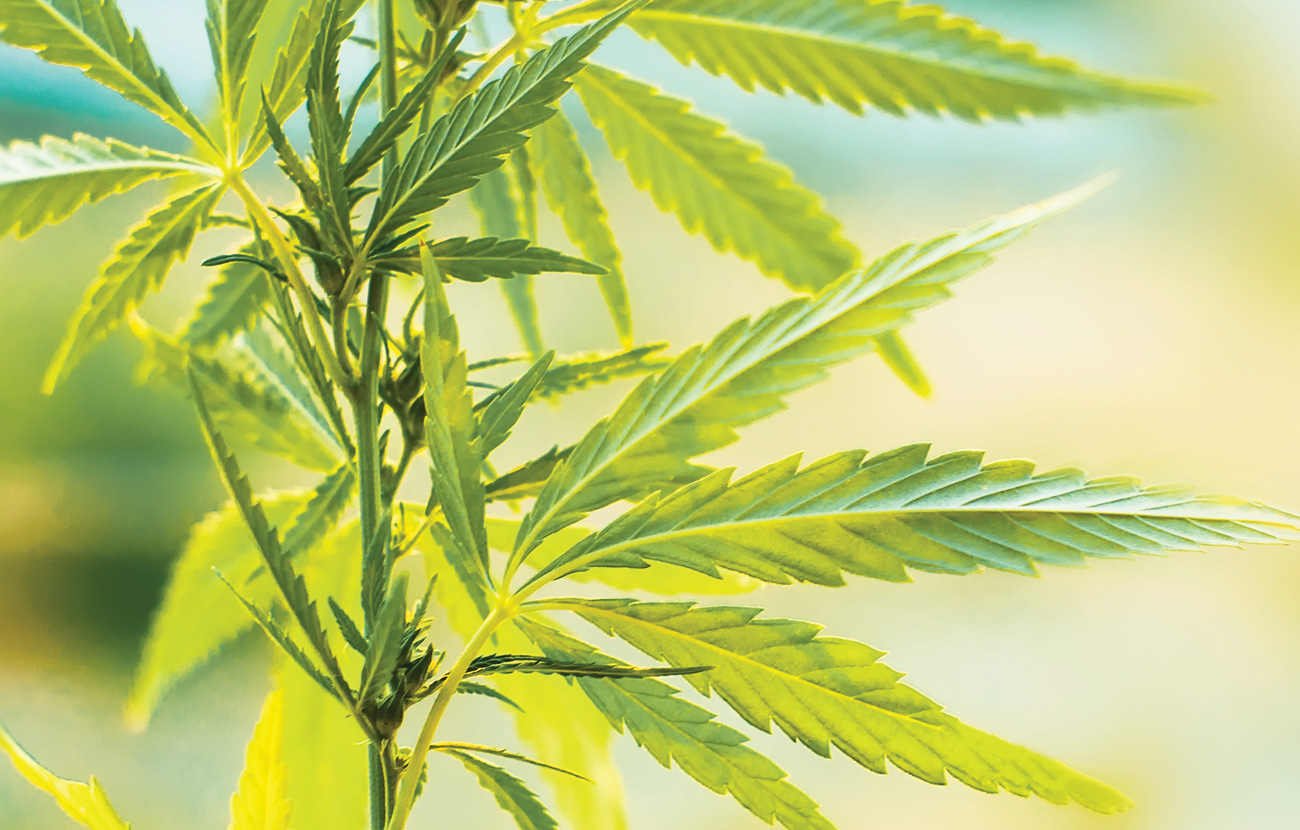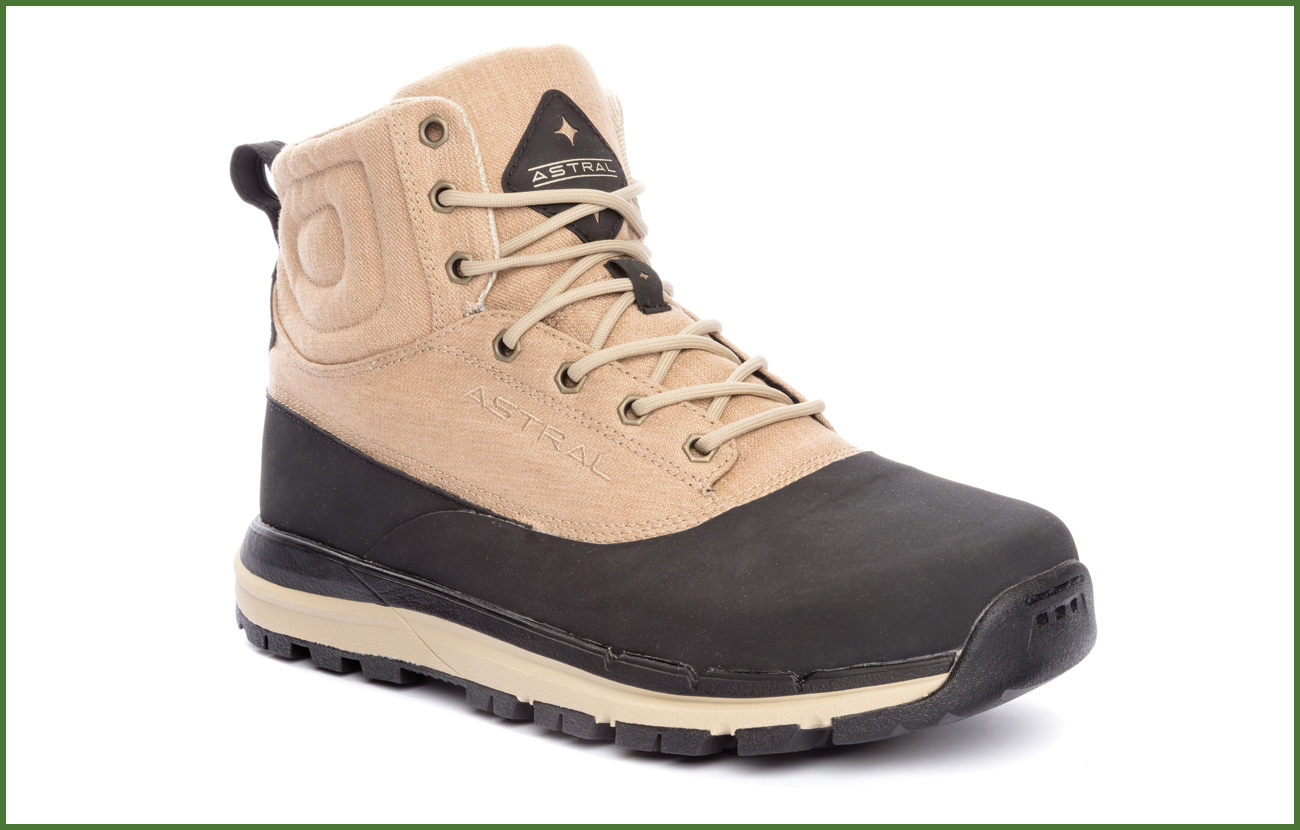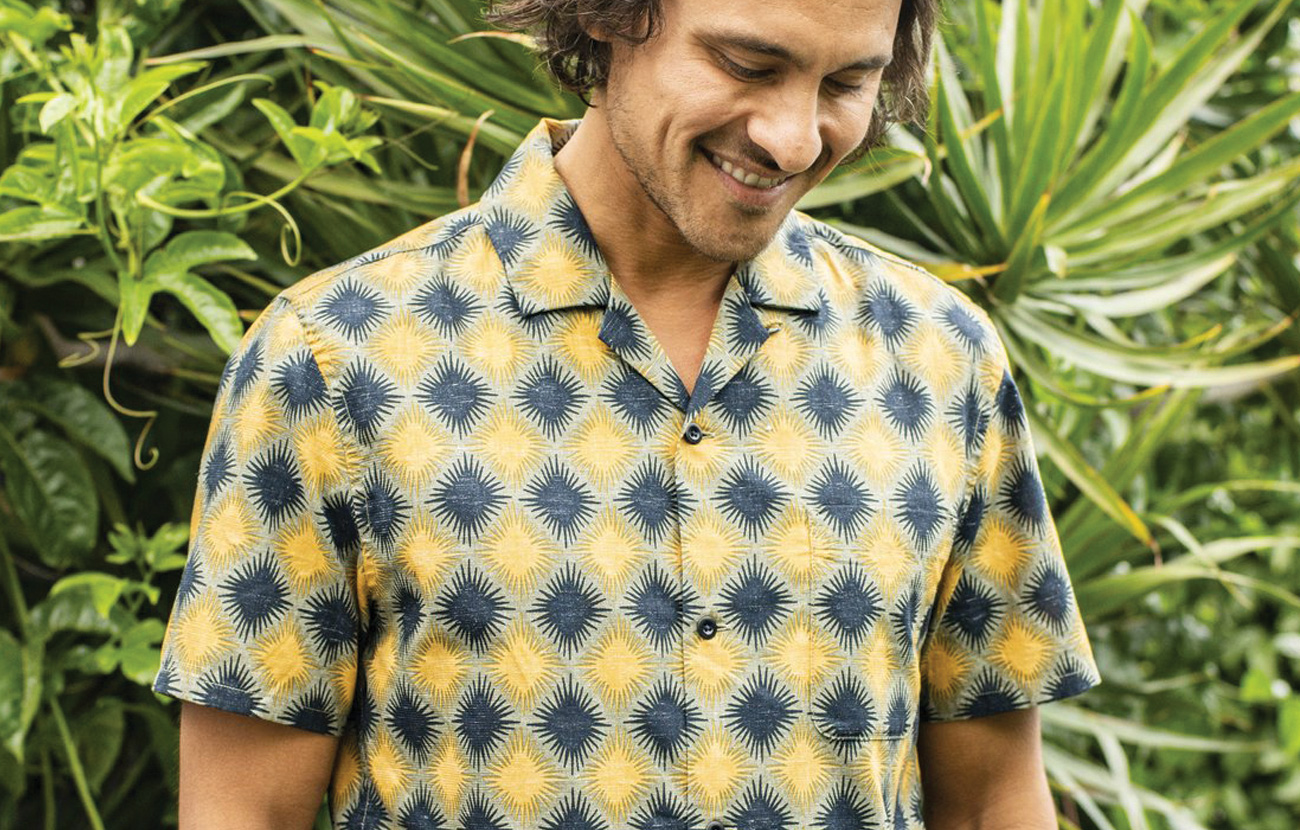
Hemp So Hot Right Now
Apparel brands are high on hemp and footwear is getting in on the action, too.
Hemp So Hot Right Now
Apparel brands are high on hemp and footwear is getting in on the action, too.


Astral Takes a Walk on the Sustainable Side
Asheville, NC-based footwear brand Astral is making a name for itself with its offerings of sustainable solutions in its footwear line. The brand’s growing collection of #NatureFirst performance casual shoes now includes the Hemp Baker, Hemp Loyak and Hemp Maria.
And coming in Fall 2019 is the Astral Halestorm ($140), a hiking boot that pairs the brand’s aggressive Trail Grip outsole with a Hemp canvas upper that balances waterproofing and breathability. A full wrap WeatherGuard shields the bottom of the foot from rain or slush, while the Hemp upper aims to provide comfort and durability. It’s decidedly a “trail or town” style.
But the goal goes beyond fashion and function. “Our new hemp shoes are some of the most sustainable shoes you can find,” says Philip Curry, Astral’s founder and CEO. “Hemp is good for the earth. It’s petroleum-free, which means it only needs water, soil and sun to grow. Our hemp is easily grown without pesticides, herbicides or fertilizers. Above all, hemp takes 21 percent less water to grow than cotton, leaving that water to run clearly in our rivers. It was an obvious choice for designing the ultimate outdoor and lifestyle footwear hybrid.”
The brand’s casual hemp styles — the Hemp Baker, Loyak and Maria have durable, naturally odor-resistant Hemp Canvas uppers stitched to flexible and grippy outsoles. The hemp canvas material is naturally antimicrobial, has better abrasion resistance than cotton and boasts excellent UV resistance, according to the brand. — Cara Griffin

Outerknown Is High on Hemp
John Moore, co-founder of Outerknown, says “We’ve used hemp since the beginning at Outerknown across varied categories such as tees and sweatshirts, to button down shirts, and even trunks and trousers.” Outerknown, the sustainable and stylish surf-inspired brand whose co-founder is surf legend Kelly Slater, balances the strength of the hemp fiber with blends like organic cotton to soften it up for knit and woven textiles.
Hemp is woven into Outerknown’s best-selling BBQ and Beachcomber shirts for men. And this summer, the brand is adding new colors to its Sur sweats program that is 55 percent hemp/45percent organic cotton. The brand will also introduce a classic swim trunk/walk short hybrid called the Halcyon, which is inspired by 1950s/60s surf style, when trunks were made of heavy twill. On the women’s side, the Neptune dress is a full length knit hemp/Tencel Lyocell blend. There are plans to add more hemp blends to the collection in a few months. And a Levi’s x Outerknown collab continued this spring with a cottonized-hemp blend (69 percent cotton/31 percent hemp) in the Wellthread Trucker, 511 slim fit jeans and a western shirt.
Outerknown sources its hemp from China, where the fiber is grown in the same region as the supplier. When Moore began sourcing it in 2015, there were few options in the U.S., and the brand was not able to control the costs to do so. “Now that the Farm Bill passed last year, we know there will be many more options closer to home for textiles, and other industries, and we’ll be exploring these options for sure,” he says. Hemp’s earth-friendly profile enables the brand to get “Happy earth. Happy plants. Happy clothes,” he concludes. — Suzanne Blecher

Aventura + Ecoths Focus on Eco
Aventura Clothing, in its Aventura women’s brand and Ecōths men’s brand, is laser focused on eco-friendly fabrications. The brands incorporate a variety of sustainable fabrics into their styles, including hemp, as well as bamboo and recycled polyester. “We are particularly proud that we can trace the yarns in many of our sustainable styles back to origins,” says Tom Williamson, VP of marketing and sales for Aventura and Ecōths. “These sustainable fabrics offer lightweight, breathable options for spring and summer that feel cool to the skin and perform great on hot summer days.”
Adds Williamson, “As far as trends, we definitely have noticed that hemp is the hot fabric right now, and we’re seeing it pop up everywhere from shoes and lip balms to clothing. At Aventura and Ecōths, we’ve taken hemp, which is known for its durability, abrasion and UV-resistance, and combined it with recycled polyester to create shorts for men and women that have just the right amount of stretch for comfort, keep their shape after many wears, pack nicely for traveling and don’t wrinkle easily.”
New for Spring 2020 from Aventura is the Temple Short, a Fair Trade Certified garment made with a hemp/recycled poly blend. It is lightweight, packable, durable and extremely comfortable to wear when the temps rise.
New for Spring 2020 from Ecōths is the Dixon Pant, billed as “Quite possibly the most comfortable pant ever made.” The Fair Trade Certified pant is made from a lightweight fabric of hemp and recycled poly. — Cara Griffin

The Lowdown on Hemp
Hemp vs. Marijuana
Industrial hemp contains small amounts of tetrahydrocannabinol (THC), which is the psychoactive substance in marijuana. Industrial hemp and marijuana come from the same family – cannabis sativa – and look very similar. Industrial hemp for cannabidiol (CBD) production and hemp for marijuana are both encouraged to have flowers which concentrate THC (for marijuana) or cannabinoids (for CBD production). Alternatively, industrial hemp for grain or fiber is grown closer together.
Where Hemp Is Grown
While little industrial hemp is currently grown in the U.S., things are starting to change as a result of the 2018 Farm Bill that legalized its regulated production. The tricky part is that a lot of industrial hemp seeds sold are labeled for dual purpose – for grain and for fiber. The differences for textile grade fibers are in the manner it’s grown close together, harvested, cut and mechanically processed. Decortication removes the pithy inside of the stalk. Hurd is inside, which is not used for textiles. Mechanical decortication separates the bark from the hurd, and then it goes through cottonization. The end result is a fiber similar to cotton, but greater strength and abrasion, antimicrobial properties and UV resistance. Industrial hemp is rain-fed and requires little water to grow. – Suzanne Blecher









%20(1).jpg)

.svg)